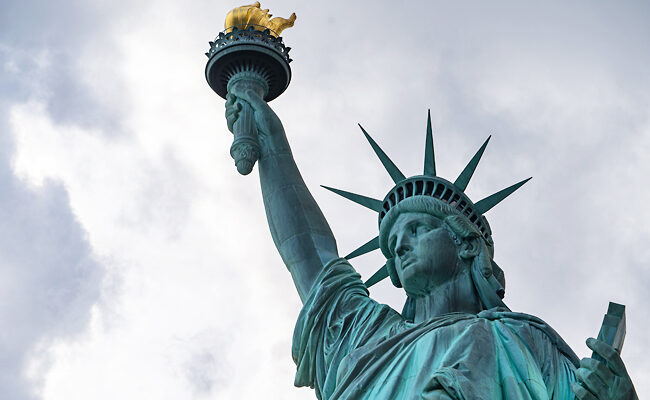PARIS: France should reclaim the Statue of Liberty because the United States no longer upholds the values that originally inspired France to gift the monument, a prominent French Euro-deputy declared on Sunday.
Raphaël Glucksmann, a centre-left politician and leader of the Place Publique movement, made the bold statement during a convention of his party, calling on the United States to return the iconic statue. His words drew enthusiastic applause from his supporters.
“Give us back the Statue of Liberty,” Glucksmann urged. “We are addressing those Americans who have chosen to align with tyrants, who have dismissed researchers for demanding scientific freedom: Return the Statue of Liberty to us.” He emphasized that France had originally given the statue as a symbol of freedom and democracy, but if the United States no longer cherishes those ideals, then the monument would be better off back in France.
“We gifted you the Statue of Liberty as a token of the friendship between our nations, a tribute to shared democratic values. But if you reject it, if you no longer uphold the spirit of liberty, then we will gladly take it back,” he asserted.

The Statue of Liberty, an enduring emblem of freedom and democracy, was presented to the United States by the French people and officially unveiled in New York Harbor on October 28, 1886. Designed by French sculptor Auguste Bartholdi and built with the engineering expertise of Gustave Eiffel, the statue commemorated the centennial of the American Declaration of Independence and symbolized the enduring Franco-American alliance.

France does have a smaller replica of the Statue of Liberty, located on a small island in the Seine River in Paris. However, Glucksmann’s remarks suggest that he believes the original statue belongs in France, given his criticism of the current political direction of the United States.
Glucksmann has been an outspoken advocate for Ukraine and a fierce critic of President Donald Trump’s radical policy shifts since his return to the White House in January. The French politician condemned Trump’s decision to significantly reduce U.S. support for Ukraine in its ongoing war against Russia, viewing it as a betrayal of democratic values and an endorsement of authoritarianism.
In addition to critiquing the administration’s stance on global affairs, Glucksmann also took aim at Trump’s sweeping cuts to American research institutions. The administration has slashed federal research funding and moved to dismiss hundreds of government-employed scientists working on critical issues such as health and climate change. These actions, according to Glucksmann, undermine the country’s long-held position as a global leader in scientific innovation and progress.
“The second message we have for the United States is this: If you wish to fire your best researchers, if you choose to silence the brilliant minds who have propelled your nation to the forefront of scientific discovery, then we will welcome them in France,” he said. “We will provide them with opportunities to continue their work freely, without political interference, because innovation, intellectual curiosity, and the pursuit of knowledge are fundamental to a thriving democracy.”
Glucksmann’s remarks align with the French government’s recent initiative to attract international researchers, particularly those affected by funding cuts and job losses in the United States. With an emphasis on scientific freedom, France aims to provide a haven for experts in health, climate science, and other fields facing uncertainty under Trump’s administration.
His statements reflect growing concerns in Europe about the direction of American policy under Trump, particularly its impact on global democracy, international cooperation, and scientific progress. While his call to reclaim the Statue of Liberty may be largely symbolic, it underscores deeper anxieties about the erosion of the values that the statue represents.
As the political landscape continues to shift, the debate over democracy, freedom, and scientific independence remains a pressing issue for both the United States and its allies. Whether or not the United States would ever consider relinquishing the Statue of Liberty, Glucksmann’s challenge serves as a powerful reminder of the expectations and responsibilities tied to such an iconic symbol.



